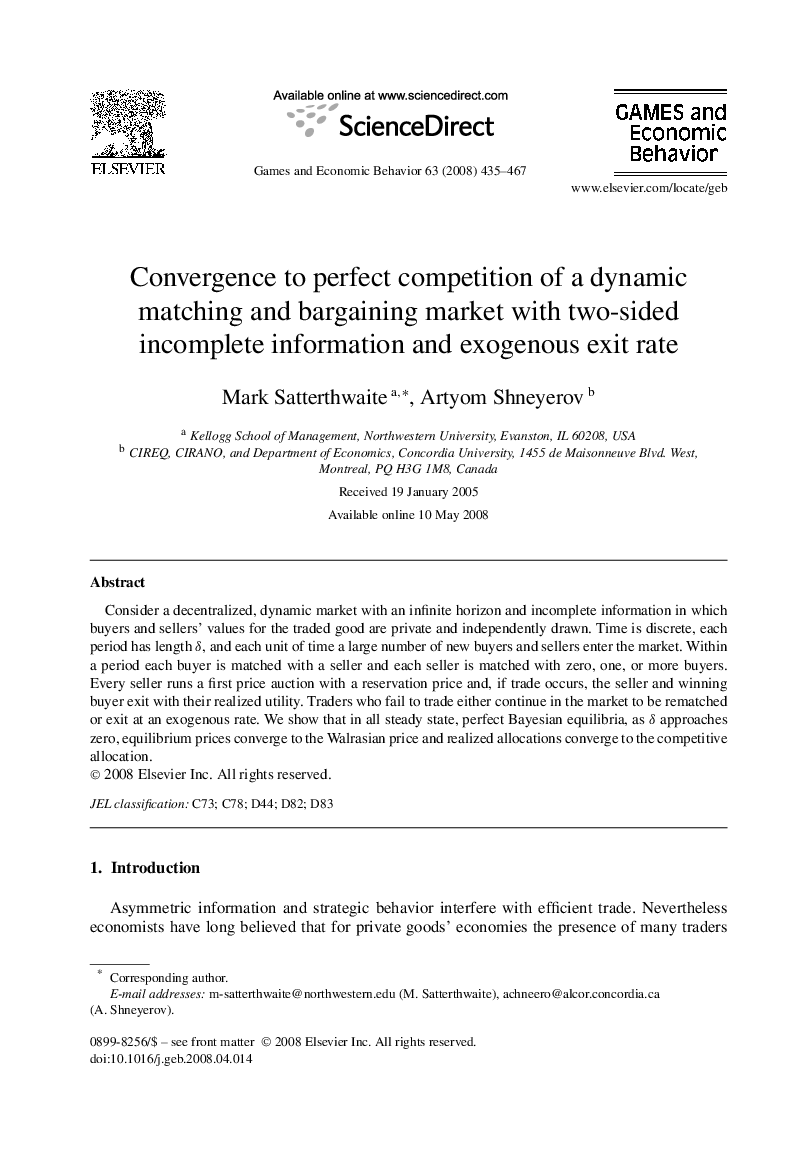| Article ID | Journal | Published Year | Pages | File Type |
|---|---|---|---|---|
| 5072788 | Games and Economic Behavior | 2008 | 33 Pages |
Consider a decentralized, dynamic market with an infinite horizon and incomplete information in which buyers and sellers' values for the traded good are private and independently drawn. Time is discrete, each period has length δ, and each unit of time a large number of new buyers and sellers enter the market. Within a period each buyer is matched with a seller and each seller is matched with zero, one, or more buyers. Every seller runs a first price auction with a reservation price and, if trade occurs, the seller and winning buyer exit with their realized utility. Traders who fail to trade either continue in the market to be rematched or exit at an exogenous rate. We show that in all steady state, perfect Bayesian equilibria, as δ approaches zero, equilibrium prices converge to the Walrasian price and realized allocations converge to the competitive allocation.
